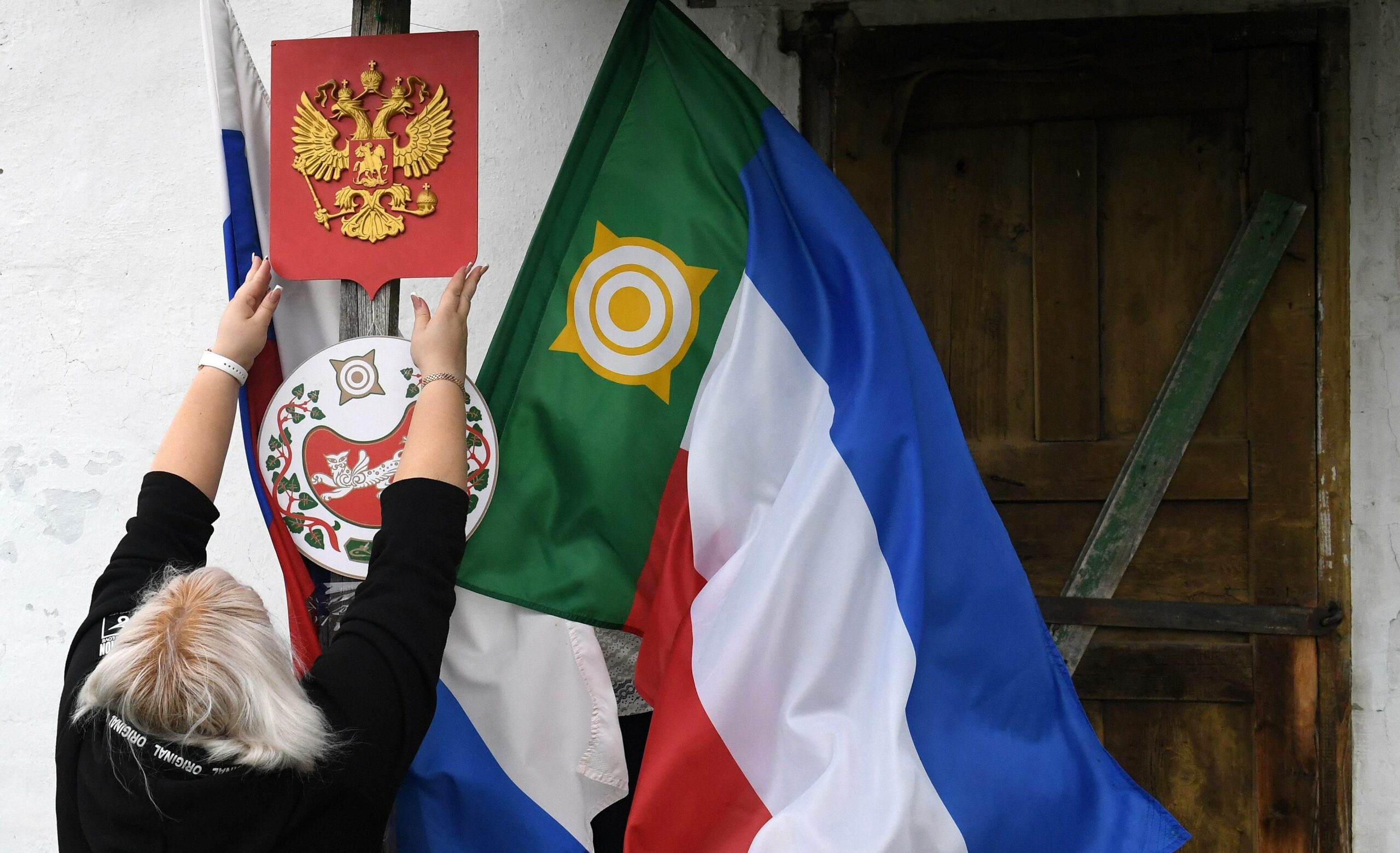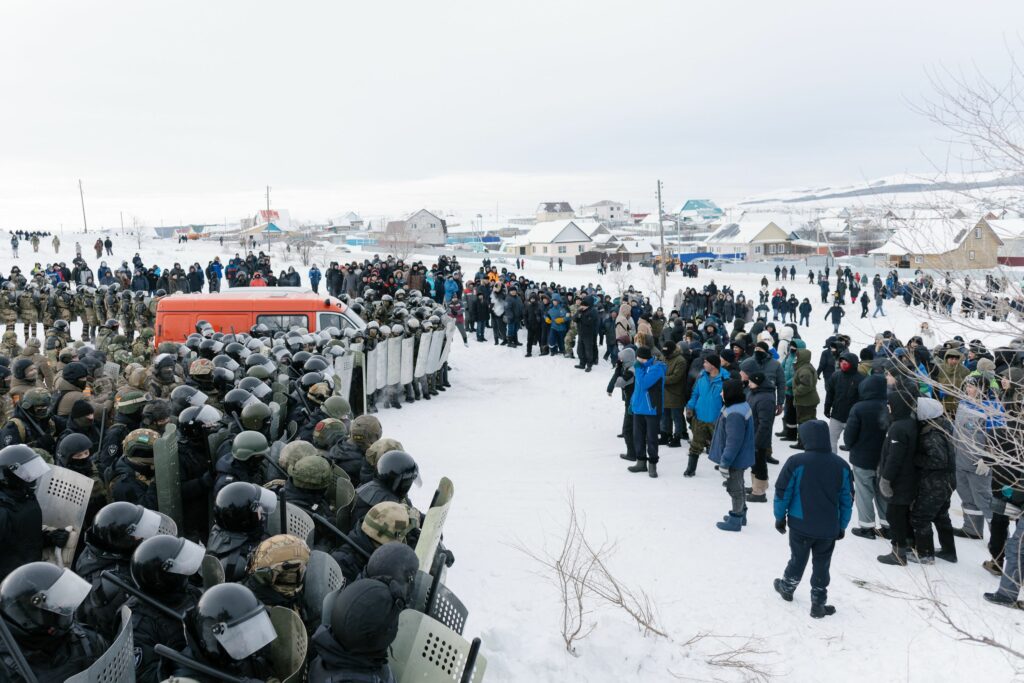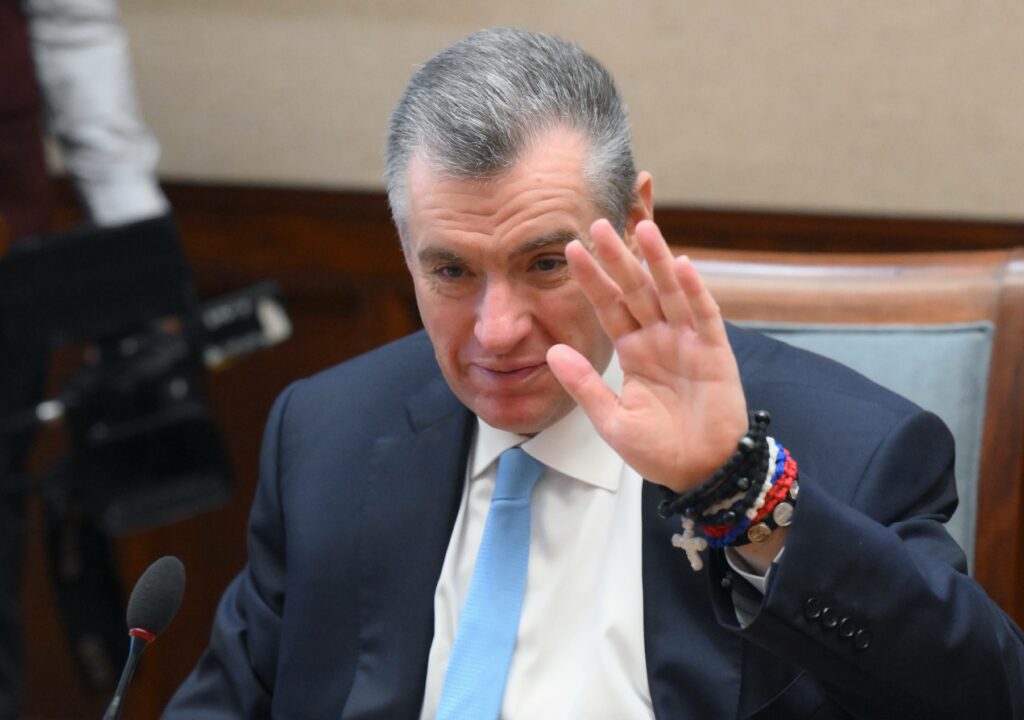Except for this weekend’s elections in Khakassia — which were already problematic for the Kremlin five years ago — these September elections across Russia’s regions are drawing scant attention due to a lack of credible competition or campaigning. Yet these elections are still a key moment in the metamorphosis of Putin’s power vertical. The system is resurrecting old Soviet practices of party bureaucracy. The Kremlin is trying to ensure that the governors remain the only notable public politicians in the regions — so-called secretaries of regional committees with extended economic powers. They are in charge of the United Russia regional offices, and now they head the lists of the party in power not only in regional parliaments but also in their municipalities. The Presidential Administration pushing out dissenting voices, ousting parties like the communists (KPRF) from their second place popularity in favor of more compliant parties; strong regional elite members are not allowed to run at all.
Moscow is consciously simplifying its management of the regions, but this could have a knock on effect: the transformation of local politicians into a gray bureaucratic mass without public authority is fraught with loss of control in crisis situations. An unknown bureaucrat will not be able to be a mediator between the Kremlin and a population dissatisfied with any issue. The regional elites are also dissatisfied with this transformation into a gray mass, which is illustrated by the situation in Khakassia, where they, in the end, made Moscow pull its candidate from the race.
Responsible for everything
In this year’s election campaign, the regional administrations and «United Russia» finally merged into a single system. The governors lead the party lists of «United Russia» even for municipal elections; they top all lists of the ruling party in the legislative assemblies (except for territories with communist leaders); they manage the regional offices of United Russia. The practice of governors’ who spearhead party lists is not new, but earlier there were plenty of exceptions. For instance, when a governor had bad public approval ratings, he was removed from leadership not to taint United Russia results. Or the other way around, it was allowed for some ambitious governors to run as independent not to lose popularity because of association with United Russia. There are no more exceptions like that left. Moreover, in cities with high levels of protests — governors are made to head municipal elections party lists, like in Arkhangelsk, Yakutsk and Krasnoyarsk.
Not everyone likes their new roles. For example, the leader of Yakutia, Aisen Nikolaev, responded without enthusiasm to being made leader of the United Russia list: the party is not very popular in the region and pulls down Nikolaev’s own rating in the governor’s elections. However, Nikolaev was unable to refuse the new rules. Up to this point governors head the regional branches of the party in approximately half of the Russian regions and that only expands now; sometimes governors are forced to become United Russia faces.
The confirmation of governors in the lists of United Russia, including at the municipal level, and their status as regional party offices heads marks an important trend within the Russian power vertical. The Kremlin is reviving many Soviet practices, and writing the heads of regions into the party vertical is just one of them. Governors turn into latter day full-fledged party first secretaries of regional committees from Soviet times and even surpass them in terms of powers, influence and status. The first Soviet secretaries did not formally have a relationship with the management of the economy; the heads of the executive committees of the CPSU dealt with it. The Russian governor is responsible for the elections, the resolution of elite conflicts, the party, and the economy. Other local players turn into his subordinates on the bureaucratic or party front (this applies to high status entrepreneurs and politicians). It’s easier to manage such a system from the Kremlin: you only directly engage the governor who in turn deals with the rest under his mandate of control.
Previously, the regional vertical was more complicated. United Russia, as a rule, was headed by a high status local, most often the speaker of the assembly. That character was a significant political player by virtue of his position, influencing the situation in the region and possessing political authority though far from omnipotent. Back in the mid-10s of the 21st century, many municipalities were governed by heads elected in direct elections. They could have been even in confrontation with the governor. This also applied to influential speakers and heads of United Russai regional offices. All the listed players had to maintain publicity and try to maintain authority among local elites and voters — this was the main currency of the political competition. Presidential Administration managed their conflicts, although, of course, priority in them was most often given to the governor. At the same time, the regional management system did not have a single center of gravity, and the party in power as a political unit was pulled by bright characters who had an incentive to do this. In the end, such a construction was beneficial to the Kremlin — it co-opted in its support high status local players who could play against it. Each of these players was in his place and felt his need. Even after the practically nationwide cancellation of mayoral elections, the heads of city administrations were forced to preserve at least elements of publicity and play real politicians — because they needed to run lists of United Russia on municipal elections. While mayors are involved in campaigns, the latest experiments of the Kremlin and United Russia with governors in local elections show that soon they will be completely excluded from public political processes.
Loss of authority
Having closed all public roles and significant statuses to governors only such as the leaders of United Russia regional branches, the Kremlin leaves local ambitious players with no incentives to participate in regional political life. Why bother if Moscow will appoint their own governor from afar who would get all power by virtue of his/her appointment?
Either way, any local actor will be subordinate to the head of the region, either on economic or party lines. Same as the speaker of the regional parliament will be obliged to listen to governor orders and would be deprived of any independence.
The career track in the region becomes simple; be loyal to the governor and participate in all Kremlin personnel competitions. Thus, loyalty in regional politics finally becomes quality the Kremlin requires from local politicians and bureaucrats. Publicity and authority are not recognized as qualities: they are supposed to be possessed only by the governor. The heads of regions become the only pro-government politicians who will be known to the residents of their territory. That’s what they show on regional TV. Other candidates are most often positioned as «governor’s team» — that is, in the campaign for them, the primary figure is the head of the region, and then the candidates of the ruling party themselves. Lower-level officials and politicians turn into a gray bureaucratic mass without names, surnames or authority.
The problems with simplicity
For the Presidential Administration’s political bloc under the leadership of Sergey Kirienko, who deliberately simplifies the power vertical function, this situation is fraught with two possible serious consequences. The easiest of them to manage is the opposition of the local elites, who don’t really want to turn into a faceless mass. We already see it in Khakassia.
In 2018, the region was headed by the communist Valentin Konovalov, who was elected due to the dissatisfaction of the local residents with the United Russia governor and a wave of protests over the pension reform. For five years, the Kremlin did not achieve his resignation, and the Presidential Administration decided to defeat Konovalov in the elections.
Regional office of United Russia is now headed by Duma MP Sergei Sokol. He began to carry out purges, cutting out a powerful local United Russia member from elections, including the speaker of the parliament, Vladimir Shtygashev. As a result, these influential players switched sides and are now running with KPRF and supporting acting governor Konovalov.
Thanks to this support and criticism of Sokol, the rating of the governor-communist began to grow, and the rating of the United Russia stagnated. Even pro-Kremlin experts expected that at least the second round of voting would take place in the region with an unpredictable outcome; it is however quite likely that Konovalov would have defeated the Kremlin’s protege in the first round as well.
The Presidential Administration discusses different scenarios, including annulling election results due to alleged falsifications. Indeed, the Central Electoral Commission began to hint at this scenario. However, Sokol «became seriously ill» and withdrew from the elections; now Konovalov is guaranteed to win the campaign. The media and experts close to authorities can argue as much as they want that his victory changes little and generally plays to stability; but the efforts of Moscow to elect Sokol shows the Presidential Administration lost. Khakassian elites — previously, in principle, loyal to the Kremlin — did not play by the new rules and lay down under the imposed «first secretary.» Instead, they kept a local and understandable figure as governor. Thus, they set an example to «peers» from other regions, who also do not wish to lose their own decision making power. Regional figures can ride a wave of discontent, traces of which we can see in other elections. The results of the vote in the Altai Territory for instance, where the not-so popular Moscow appointed Viktor Tomenko is trying to be re-elected for a second term, may surprise us as well. The Presidential Administration eliminated his most dangerous competitor — the communist Maria Prusakov — but apparently the efforts were not enough, and we now see other candidates withdrawing themselves in favor of Tomenko. Yakutia and Irkutsk region, where the KPRF support is strong, can show their character in the elections as well.
The second consequence is more serious. The requirement to show some public support forced United Russia governors and candidates to show at least some form of dialogue with their electorate. These public engagements — if successful — helped secure organic support during elections. But starting now, the appointed governors, who would only care for what Moscow thinks, no longer need organic support from voters. Governors thus lose any incentive or need to be recognizable at all. The Kremlin has been preaching that it needs apolitical technocrats as head of the regions. These figures will no longer carry any weight with the public and will only be elected as proxies for the Kremlin and Vladmir Putin personally.
Thus, in case Kremlin and Putin personally would end up in trouble, these governors would not be able to assist them with much political capital. As a gray bureaucratic mass, they will have no sway with the public and regional elites. Such bureaucracy was one of the most significant factors in the collapse of the USSR; it will definitely not add vitality to Putin’s power vertical.










